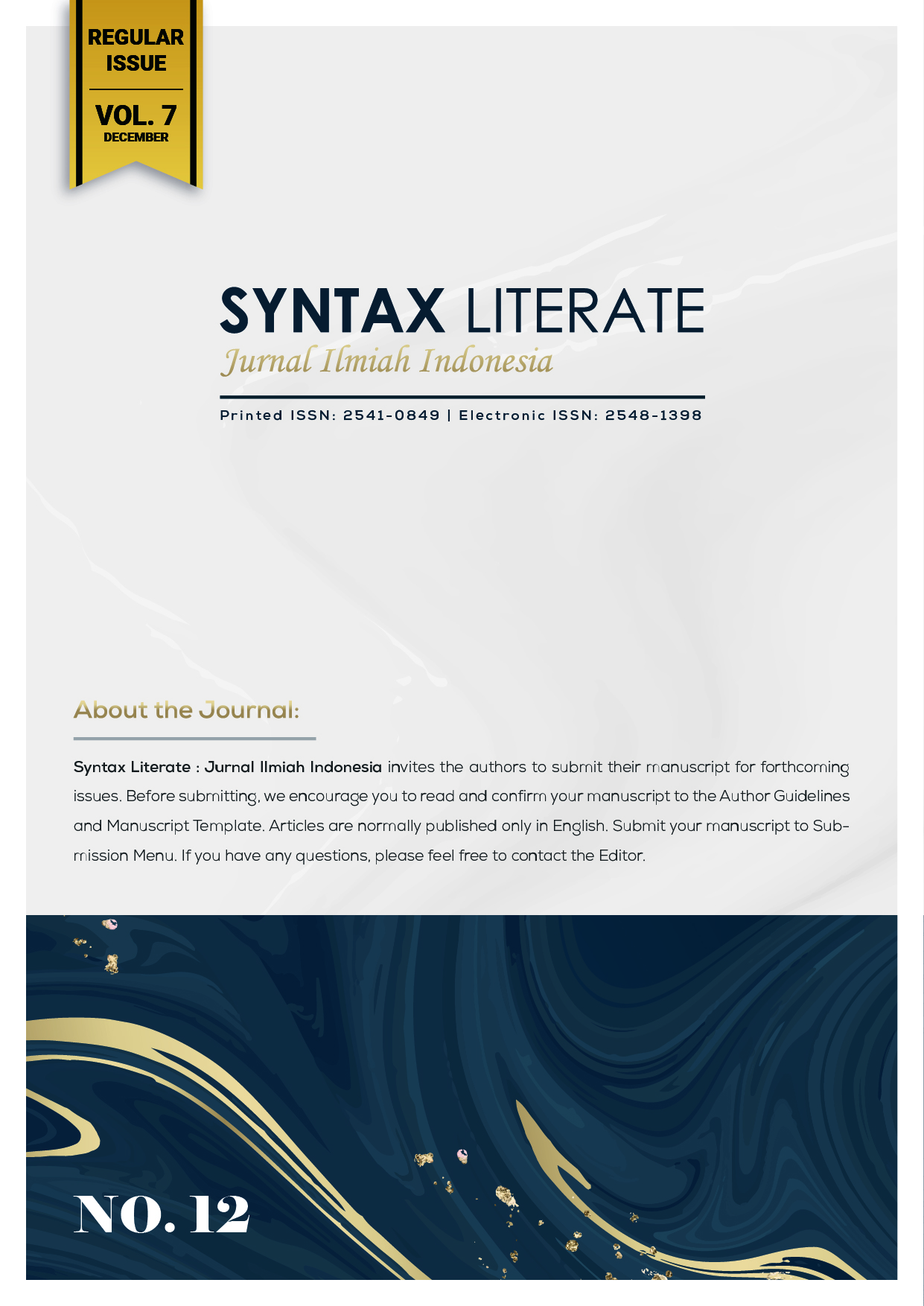UMKM Pariwisata dan Pendidikan Pasca Pandemi
Abstract
Kewirausahaan menjadi isu sentral baik di negara berkembang maupun negara maju sebagai upaya pemulihan kesejahteraan akibat pandemi, khususnya bagi para pekerja di sektor pariwisata. Namun, pola pikir kewirausahaan muncul akibat tekanan dari kebutuhan hidup, bukan dari pola pikir yang diajarkan selama pendidikan formal. Maka perlu dikaji peran dan kebutuhan tenaga kependidikan untuk mengajarkan pola pikir wirausaha mulai dari pendidikan formal baik di SMA maupun di perguruan tinggi untuk mendapatkan pemahaman yang lebih baik tentang pola pikir wirausaha (entrepreneur mindset). Metode pendekatan kualitatif, subjeknya adalah mahasiswa dan praktisi sebanyak sepuluh orang dari industri perhotelan yang sebelumnya terkena dampak pandemi COVID-19 dan beralih profesi dengan memiliki usaha. Hasil temuan menunjukkan bahwa pendidikan kewirausahaan berpengaruh positif jika diajarkan dari pendidikan formal baik SMA maupun perguruan tinggi karena selama ini muncul kecemasan dalam situasi pandemi bagaimana bertahan hidup setiap hari.
Downloads
References
Davis, M. H., Hall, J. A., & Mayer, P. S. (2016). Developing a new measure of entrepreneurial mindset: Reliability, validity, and implications for practitioners. Consulting Psychology Journal: Practice and Research, 68(1), 21.
Doran, J., McCarthy, N., & O’Connor, M. (2018). The role of entrepreneurship in stimulating economic growth in developed and developing countries. Cogent Economics & Finance, 6(1), 1442093.
Farrukh, M., Khan, A. A., Khan, M. S., Ramzani, S. R., & Soladoye, B. S. A. (2017). Entrepreneurial intentions: the role of family factors, personality traits and self-efficacy. World Journal of Entrepreneurship, Management and Sustainable Development, 13(4), 303–317.
Fayolle, A., & Gailly, B. (2015). The impact of entrepreneurship education on entrepreneurial attitudes and intention: Hysteresis and persistence. Journal of Small Business Management, 53(1), 75–93.
Halvarsson, D., Korpi, M., & Wennberg, K. (2018). Entrepreneurship and income inequality. Journal of Economic Behavior & Organization, 145, 275–293.
Haynie, J. M., Shepherd, D., Mosakowski, E., & Earley, P. C. (2010). A situated metacognitive model of the entrepreneurial mindset. Journal of Business Venturing, 25(2), 217–229.
Kumar, R., & Raj, T. (2019). Role of entrepreneurship in boosting economic growth and employment in India. SEDME (Small Enterprises Development, Management & Extension Journal), 46(4), 273–281.
Maresch, D., Harms, R., Kailer, N., & Wimmer-Wurm, B. (2016). The impact of entrepreneurship education on the entrepreneurial intention of students in science and engineering versus business studies university programs. Technological Forecasting and Social Change, 104, 172–179.
Mathias, B. D., Williams, D. W., & Smith, A. R. (2015). Entrepreneurial inception: The role of imprinting in entrepreneurial action. Journal of Business Venturing, 30(1), 11–28.
Naumann, C. (2017). Entrepreneurial mindset: A synthetic literature review. Entrepreneurial Business and Economics Review, 5(3), 149–172.
Rantanen, T., & Toikko, T. (2014). Entrepreneurship, social welfare, and cultural values: Young people’s social attitudes in Finland.
Rinaldy, R. (2021). Analysis of Cultural Preservation Policy in Depok Regency Youth and Sports Tourism Culture Office. Journal Of Business, Social And Technologi, 2(1), 35–42.
Sutter, C., Bruton, G. D., & Chen, J. (2019). Entrepreneurship as a solution to extreme poverty: A review and future research directions. Journal of Business Venturing, 34(1), 197–214.
Wardana, L. W., Narmaditya, B. S., Wibowo, A., Mahendra, A. M., Wibowo, N. A., Harwida, G., & Rohman, A. N. (2020). The impact of entrepreneurship education and students’ entrepreneurial mindset: the mediating role of attitude and self-efficacy. Heliyon, 6(9), e04922.
Copyright (c) 2022 Fariz Fardani Nurbaihaqi, Rini Andari, Caria Ningsih

This work is licensed under a Creative Commons Attribution-ShareAlike 4.0 International License.











